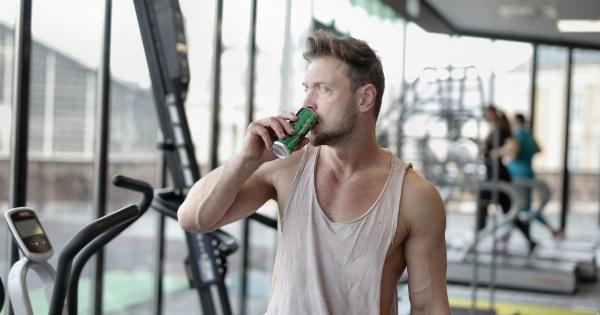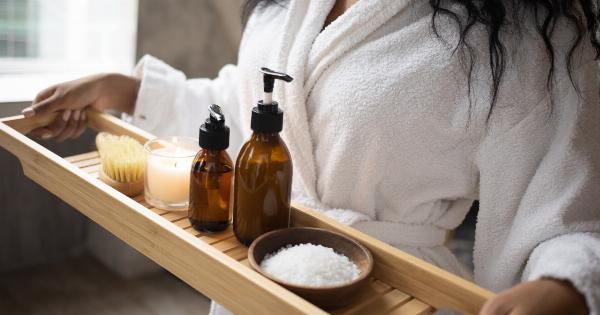Muscle cramps can be a painful and debilitating experience. They can strike at any time, leaving individuals desperate for relief.
Unfortunately, there are many misconceptions and myths surrounding muscle cramps that can cause confusion and even hinder proper treatment. In this article, we aim to debunk these myths and provide clarity on what muscle cramps truly are and how to effectively manage them.
1. Myth: Muscle cramps are only caused by dehydration.
Fact: While dehydration can contribute to muscle cramps, it is not the sole cause. Muscle cramps can be a result of various factors, including muscle fatigue, electrolyte imbalances, hormonal changes, nerve compression, and certain medical conditions.
By addressing these underlying causes, individuals can better prevent and manage muscle cramps.
2. Myth: Stretching before exercise prevents muscle cramps.
Fact: While stretching before exercise is commonly advised to prevent muscle cramps, there is limited scientific evidence to support this claim.
Stretching can help improve flexibility and reduce the risk of injury, but it might not directly prevent muscle cramps. It is more important to stay adequately hydrated, warm up properly, and maintain a balanced diet to minimize the risk of muscle cramps.
3. Myth: Muscle cramps only affect athletes.
Fact: While athletes, especially those involved in high-intensity sports, are more prone to muscle cramps, anyone can experience them.
Sedentary individuals, pregnant women, the elderly, and people with certain medical conditions are also susceptible to muscle cramps. It is essential to understand that muscle cramps can affect individuals of all activity levels and ages.
4. Myth: Applying heat to a muscle cramp provides instant relief.
Fact: Heat can help relax the affected muscles and alleviate muscle cramps, but it is not a guaranteed instant relief.
Applying heat in the form of a warm towel or a heating pad can provide some comfort, but it may take time for the muscle to fully relax. Additionally, some individuals may find more relief from applying cold therapy or performing stretching exercises during a cramp.
5. Myth: All muscle cramps are the same.
Fact: Muscle cramps can present in different ways and have varying causes. Some cramps occur suddenly and are characterized by a visible muscle twitch or knotting, while others may build up gradually and cause sustained discomfort.
The location of the muscle cramp can also vary, affecting the legs, feet, hands, arms, or even the abdomen. Understanding the specific characteristics of your muscle cramp can help determine its underlying cause and guide appropriate treatment.
6. Myth: Water alone can eliminate muscle cramps.
Fact: While staying adequately hydrated is crucial for overall muscle health, simply drinking water may not eliminate muscle cramps. Muscle cramps can arise from a combination of factors, including electrolyte imbalances.
Replenishing electrolytes through foods or drinks rich in potassium, magnesium, and calcium, or through specialized electrolyte solutions, can be more effective in preventing and relieving muscle cramps.
7. Myth: Muscle cramps are always a sign of an underlying health problem.
Fact: While muscle cramps can be a symptom of an underlying health issue, they are often harmless and commonly experienced by many individuals. Temporary muscle cramps can result from overuse, sudden movements, or inadequate rest.
However, frequent or severe muscle cramps that disrupt daily activities may warrant further medical evaluation to rule out any underlying conditions.
8. Myth: Drinking pickle juice can cure muscle cramps.
Fact: Pickle juice has gained popularity as a home remedy for muscle cramps due to its high sodium and vinegar content. While there is anecdotal evidence suggesting its effectiveness, scientific studies are inconclusive.
Pickle juice may provide temporary relief from muscle cramps, possibly due to the sodium content triggering nerve receptors. However, it is not a guaranteed cure and should not replace proper hydration and balanced nutrition.
9. Myth: Muscle cramps are always a result of overexertion.
Fact: Overexertion and muscle fatigue can contribute to muscle cramps, but they are not the exclusive causes.
As mentioned earlier, muscle cramps can occur due to various factors, including electrolyte imbalances, nerve compression, hormonal changes, and medical conditions such as peripheral artery disease or diabetes. Identifying the underlying cause is essential in effectively preventing or managing muscle cramps.
10. Myth: There is no effective treatment for muscle cramps.
Fact: While there may not be a one-size-fits-all treatment for muscle cramps, several strategies can help prevent or relieve them.
These include staying hydrated, maintaining a balanced diet, avoiding excessive alcohol and caffeine intake, managing stress levels, performing regular stretching exercises, and staying physically active. If muscle cramps persist or significantly interfere with daily life, seeking medical advice is recommended to address any underlying issues.






























